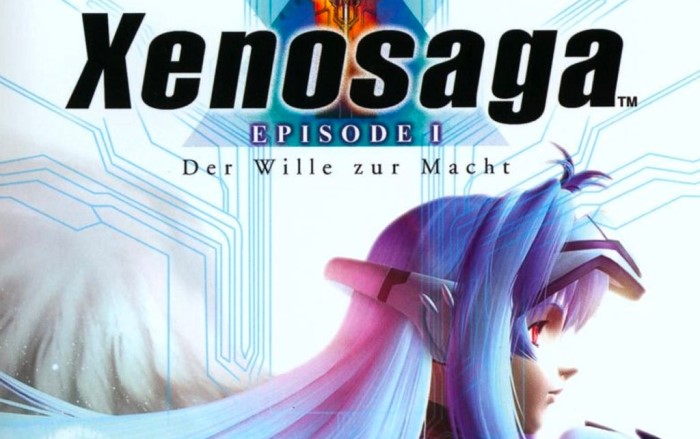Platform | PlayStation 2 |
|---|---|
Publisher | Namco |
Genre | Sci-Fi RPG |
Release Date | 02/25/2003 |
Story
Xenosaga Episode I: Der Wille zur Macht is an ambitious entry in the science fiction RPG genre, developed by Monolith Soft and released in 2002 for the PlayStation 2. The game sets its narrative amidst a backdrop of interstellar conflict and philosophical musings. The story is deeply rooted in themes of existentialism and metaphysics, drawing inspiration from the works of Friedrich Nietzsche, as evident in its title.
Players are introduced to a universe where humanity has expanded across the stars, governed by the Galaxy Federation. The narrative focuses on the mysterious Zohar, a powerful artifact sought after for its immense energy potential. The protagonist, Shion Uzuki, is a scientist working for Vector Industries, specializing in the development of anti-Gnosis technology. Gnosis are enigmatic and hostile alien life forms that pose a significant threat to human existence.
The story unfolds through a series of intricately crafted cutscenes and dialogues, which delve into the personal struggles and philosophical dilemmas faced by its characters. Shion, along with her android companion KOS-MOS and a diverse cast of allies, embarks on a journey to uncover the secrets behind the Gnosis and the true nature of the Zohar. The narrative is rich with plot twists and moral questions, challenging players to contemplate the nature of consciousness, identity, and humanity’s place in the universe.
Gameplay
Xenosaga Episode I offers a blend of traditional turn-based RPG mechanics with innovative elements that enhance strategic depth. The game’s combat system revolves around a turn-based format where players can control a party of up to three characters. Each character possesses unique abilities and can execute a combination of normal attacks, ether skills (magical attacks), and tech attacks (powerful special moves).
The game introduces several distinctive gameplay features:
- Boost System: This allows characters to interrupt the turn order and perform actions out of sequence, adding a layer of strategy to battles.
- AP System: Action Points are used to perform various actions, requiring players to strategically manage their AP to maximize damage output.
- Ether Skills: These are customizable abilities that can be equipped and leveled up, allowing players to tailor their party’s capabilities to suit their play style.
In addition to combat, players can explore various environments ranging from futuristic cityscapes to derelict spaceships. The game incorporates puzzle-solving elements and interactive environments, encouraging exploration and rewarding players with hidden items and lore.
Graphics and Sound
Xenosaga Episode I boasts impressive graphics for its time, utilizing the capabilities of the PlayStation 2 to deliver detailed character models and expansive environments. The game’s art style combines traditional anime aesthetics with a sleek, futuristic design, creating a visually captivating experience.
The cinematic cutscenes are a highlight, featuring high-quality animations and voice acting that bring the story to life. The character expressions and dynamic camera angles contribute to the narrative’s emotional impact, making key story moments particularly memorable.
The soundtrack, composed by Yasunori Mitsuda, is an outstanding component of the game’s presentation. It features a blend of orchestral and electronic compositions that underscore the game’s epic scope and emotional depth. From hauntingly beautiful melodies to intense battle themes, the music effectively enhances the atmosphere and storytelling.
Legacy and Reception
Upon its release, Xenosaga Episode I received a mix of critical acclaim and criticism. The game’s narrative ambition and philosophical depth were praised, with reviewers appreciating its complex story and character development. However, some critics noted the game’s heavy reliance on lengthy cutscenes, which at times overshadowed the gameplay.
The game’s unique approach to storytelling and its rich thematic content have earned it a devoted fanbase. Xenosaga Episode I laid the groundwork for its sequels, creating a trilogy that explores profound questions about existence and the human condition.
Despite its initial mixed reception, Xenosaga Episode I has gained a cult following over the years, with fans appreciating its bold narrative direction and distinctive gameplay mechanics. It remains a significant title in the RPG genre, influencing subsequent games with its storytelling techniques and philosophical explorations.
Conclusion
Xenosaga Episode I: Der Wille zur Macht is a standout title in the realm of RPGs, offering a narrative experience that challenges players to think deeply about philosophical concepts within an engaging science fiction setting. Its combination of strategic gameplay, captivating graphics, and a memorable soundtrack creates an immersive experience that has left a lasting impact on the genre.
While the game’s extensive cutscenes may not appeal to all players, those who appreciate a rich, story-driven experience will find much to admire in Xenosaga Episode I. Its legacy endures as a testament to the power of video games as a medium for complex storytelling and philosophical exploration.
“`














